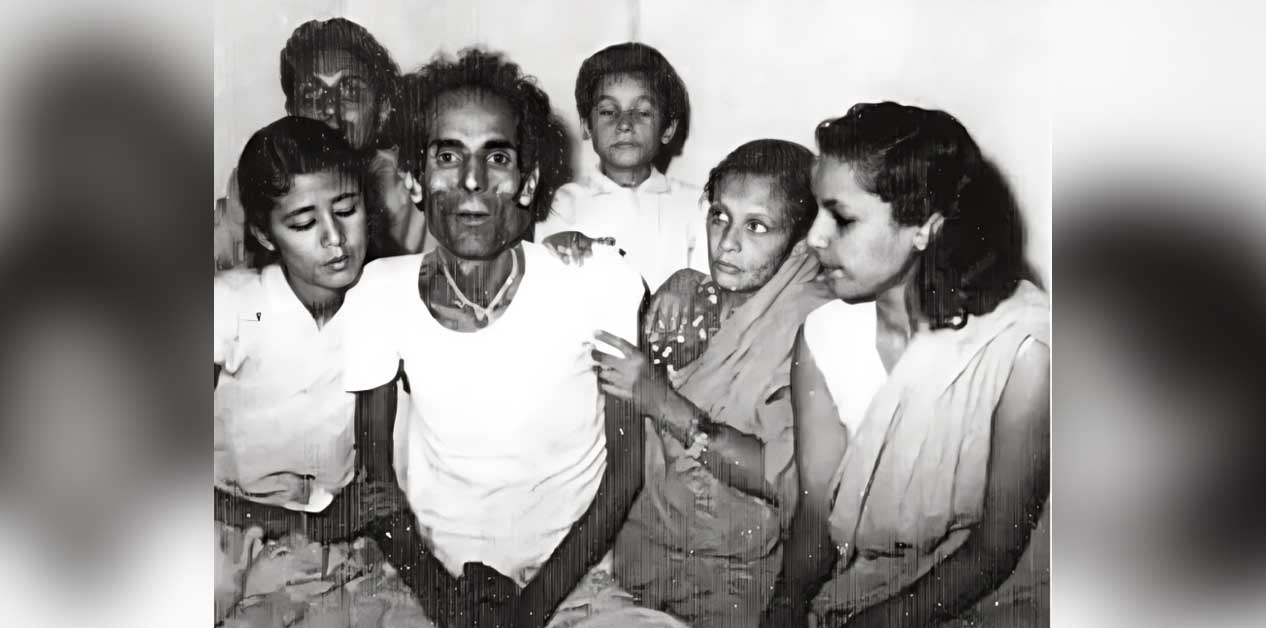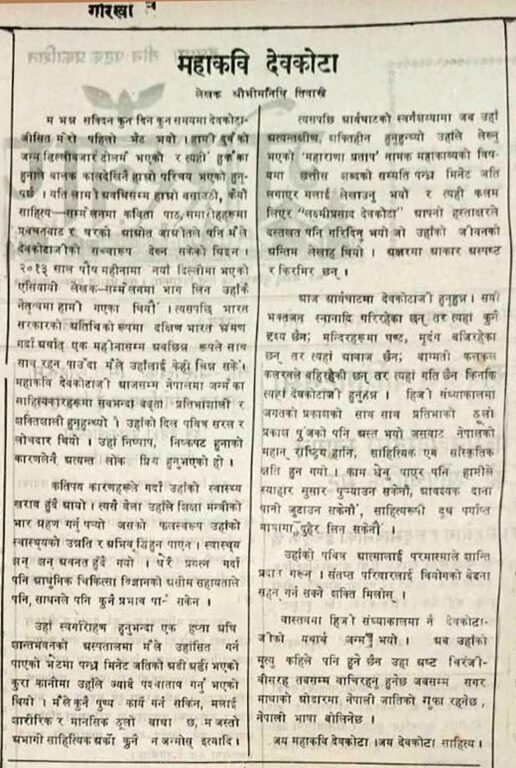

KATHMANDU: I cannot say on what day or at what time I first met Mahakabi (Great Poet) Laxmi Prasad Devkota. Since both of us were born in the Dilli Bazaar neighborhood and grew up there, we must have been acquainted since childhood.
Despite our acquaintance lasting such a long period, sitting together, participating in poetry recitations at several literary conferences, giving speeches at ceremonies, and visiting each other’s homes, I was unable to see Devkota’s true form.
We went under his leadership to participate in the Asian Writers’ Conference held in New Delhi in January 1957. After that, while touring South India as a guest of the Government of India—that is, spending a full month continuously side-by-side—I was still unable to truly know him. Mahakabi Devkota was the most talented and powerful litterateur born in Nepal to this day. His heart was pure, simple, and flexible. He became extremely popular precisely because he was innocent and sincere.
Due to several reasons, his health began to decline. It was at that time that he had to take on the responsibility of the Education Minister. As a result, his health could not improve or advance. His health continued to deteriorate further. Despite much effort, and even with the immense aid and resources of modern medical science, no effect could be made.
In the meeting I had with him at Shanta Bhawan Hospital about a week before his passing, during a conversation that lasted about fifteen minutes, he expressed great regret—’I could not do any good deeds, I have a great physical and mental barrier, may no other unfortunate litterateur like me be born’ and so on.

Bhim Nidhi Tiwari’s article, published in the Gorkhapatra on September 18, 1959
Afterward, on his heavenly bed at Aryaghat, when he was extremely weak and powerless, he had me write a thirty-six-word commendation on his epic poem, ‘Maharana Pratap,’ which he had composed, taking about fifteen minutes to dictate it, and then took the same pen and signed it with his own signature, ‘Laxmi Prasad Devkota,’ which was the last thing he ever wrote. The shapes of the letters are indistinct and scribbled.
Today, Devkota is not at Aryaghat (a sacred cremation site on the banks of Bagmati River). Hundreds of devotees are bathing and performing rituals, but there is no sight to behold. Bells and mridangams (an ancient percussion instrument originating from the Indian subcontinent) are ringing in the temples, but there is no sound there.
The Bagmati River is flowing with a gentle murmur, but there is no motion, because Devkota is not there. Yesterday evening, along with the light of the world, a great cluster of light—a genius—also set, which resulted in a great national loss and a literary and cultural deficit for Nepal. Though we had found a Kamadhenu (wish-fulfilling cow), we failed to provide proper care and maintenance, we could not gather the necessary feed and water, and we could not adequately milk the literary sustenance.
May the Almighty grant peace to his pure soul. May the distressed family receive the strength to bear the agony of separation.
In reality, Devkota’s true self was born only yesterday evening. Now, his death will never occur; he will live on like the Ashta Chiranjeevi (eight immortals) as long as there is a cave of the Nepali nation in the Himalayas and the Nepali language is spoken.
Jay Mahakavi Devkota. Hail Devkota.
(Published in Gorkhapatra on September 18, 1959).